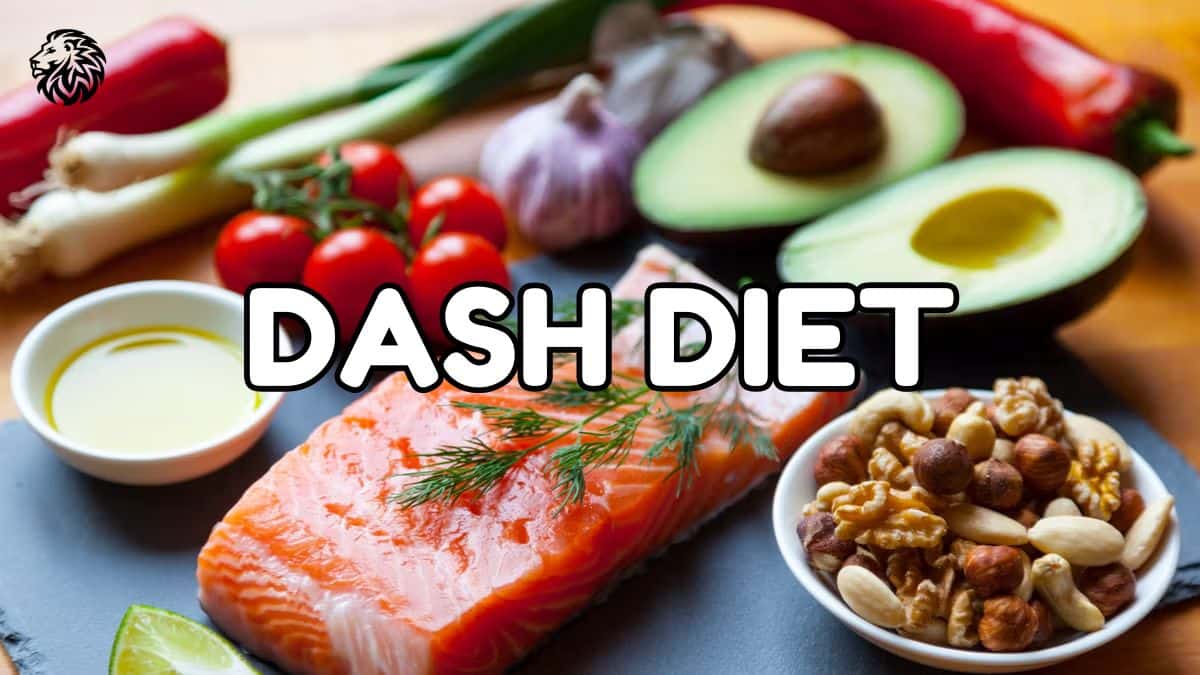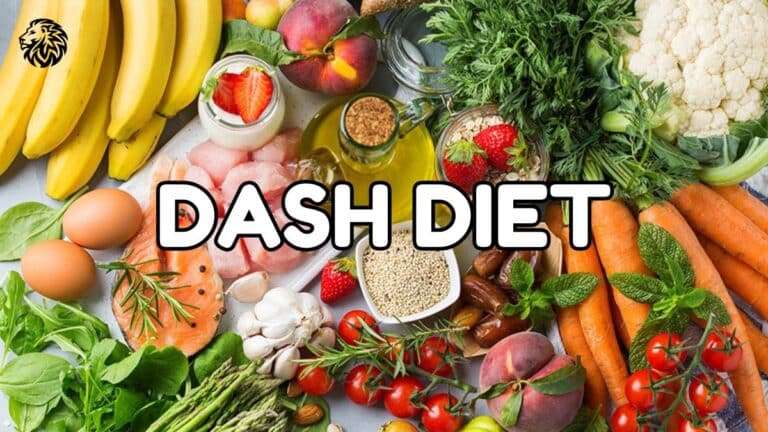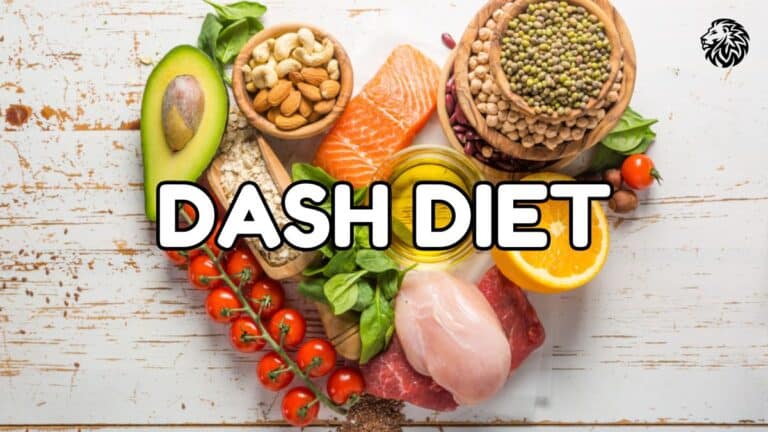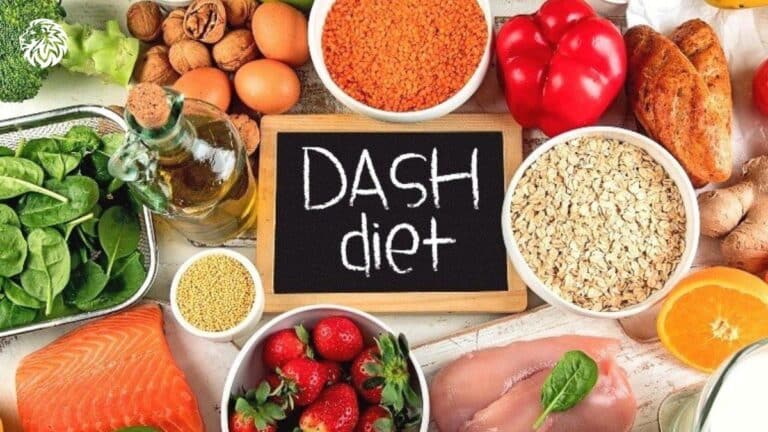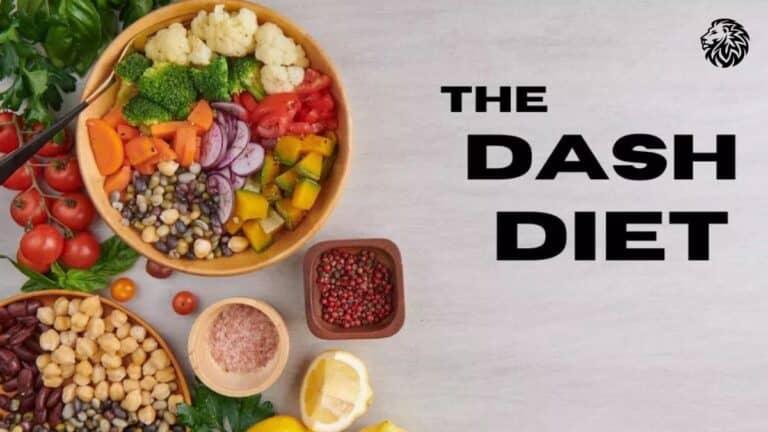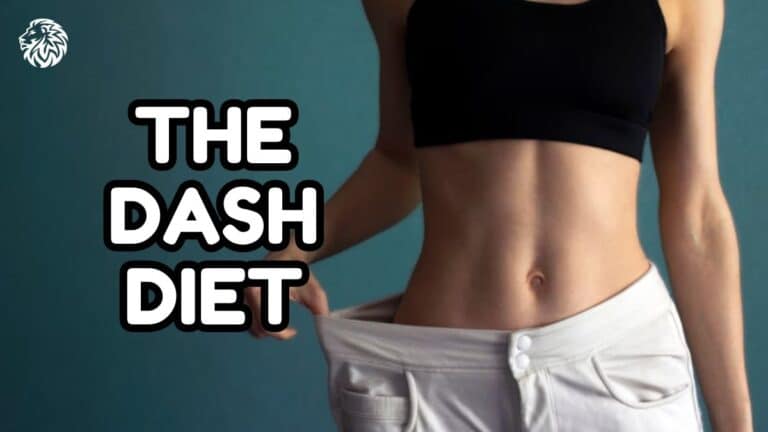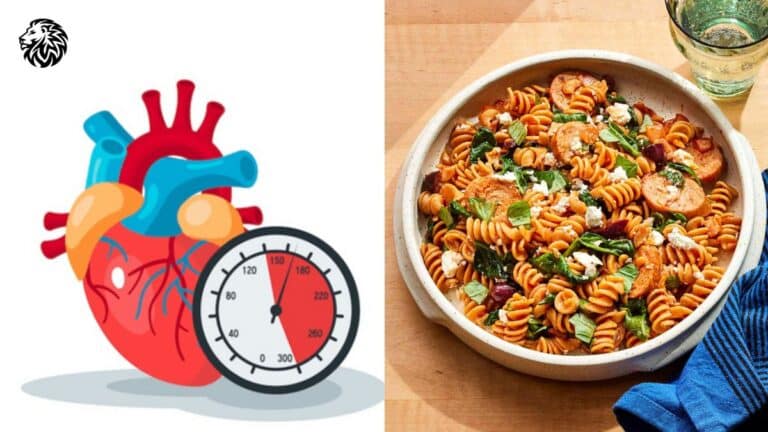The DASH (Dietary Approaches to Stop Hypertension) diet, a well-researched eating plan designed to lower blood pressure and improve heart health, focuses on nutrient-rich, low-sodium foods. By encouraging whole foods such as vegetables, fruits, whole grains, lean proteins, and healthy fats, the DASH diet creates a balanced approach to eating that supports overall wellness. However, to maximize the benefits, the DASH diet also limits or excludes certain foods that can increase sodium levels, blood pressure, or unhealthy fat intake.
Understanding which foods to avoid on the DASH diet can make following it easier and help you reach your health goals faster. Here’s a breakdown of the foods you should skip or limit when following the DASH diet.
1. Processed Foods with High Sodium Content
One of the main goals of the DASH diet is to reduce sodium intake. Processed foods, such as canned soups, frozen meals, deli meats, and packaged snacks, tend to be high in sodium to enhance flavor and extend shelf life. Consuming too much sodium can lead to high blood pressure, a major concern for those on the DASH diet.
To reduce sodium, consider choosing low-sodium or no-salt-added versions of these foods, or prepare fresh meals where you can control the salt levels. If you occasionally indulge in processed foods, look for options labeled as “low sodium” or “no added salt,” as these typically contain 140 mg or less of sodium per serving.
2. Sugary Beverages
Sugary drinks like soda, sweetened teas, and energy drinks are high in added sugars, which the DASH diet recommends avoiding. Excess sugar consumption has been linked to weight gain, diabetes, and heart disease. While these drinks may not be high in sodium, they can contribute to other health problems that the DASH diet aims to mitigate.
Instead of sugary drinks, opt for water, herbal teas, or sparkling water with a splash of fruit juice. These choices help you stay hydrated without the extra sugar and calories, supporting the DASH diet’s principles.
3. Red and Processed Meats
Red meats and processed meats, such as bacon, sausages, and hot dogs, are discouraged on the DASH diet due to their high saturated fat and sodium content. Regular consumption of these meats can contribute to heart disease, high cholesterol, and hypertension.
Lean proteins like chicken, turkey, and fish make better alternatives. When choosing meats, go for fresh cuts rather than pre-seasoned or cured varieties, as they typically have lower sodium levels. Including plant-based protein sources like beans, lentils, and tofu also aligns with the DASH diet’s goals.
4. Full-Fat Dairy Products
Full-fat dairy items, including whole milk, cream, butter, and cheese, contain saturated fats, which can raise LDL (bad) cholesterol levels. The DASH diet emphasizes low-fat or fat-free dairy options to help reduce the intake of saturated fats while still providing essential nutrients like calcium and vitamin D.
Swapping whole milk for skim or 1% milk and choosing low-fat yogurt or cottage cheese are simple adjustments that align with the DASH diet. If you enjoy cheese, consider reduced-fat or part-skim varieties and use them sparingly to keep saturated fat intake within recommended limits.
5. Sweets and Added Sugars
The DASH diet does not ban sweets entirely, but it encourages limiting foods with added sugars, such as candies, cookies, pastries, and other desserts. These items add empty calories without providing essential nutrients, and frequent consumption can lead to weight gain, high blood sugar, and other metabolic issues.
To satisfy your sweet tooth without deviating from the DASH diet, consider fresh fruits, which provide natural sweetness along with fiber and vitamins. If you’re craving dessert, opt for a small portion and enjoy it occasionally rather than making it a daily habit.
6. Snack Foods and Baked Goods with Trans Fats
Foods containing trans fats are particularly harmful to heart health. Snack foods like chips, crackers, and some commercially baked goods may contain trans fats, often listed as “partially hydrogenated oils” on ingredient labels. Trans fats can raise LDL cholesterol and increase inflammation, which are detrimental to cardiovascular health.
When selecting snacks, check the ingredient list and opt for items with healthy fats like nuts, seeds, or olive oil. Homemade snacks using whole ingredients are also a DASH-friendly way to avoid harmful trans fats.
7. Alcohol
Alcohol is not entirely off-limits on the DASH diet, but moderation is key. Excessive alcohol consumption can elevate blood pressure and contribute to weight gain. For those who choose to drink, the DASH diet recommends limiting alcohol intake to one drink per day for women and two drinks per day for men.
If you do drink, choose lower-calorie options, and be mindful of mixers, as many cocktails contain added sugars and calories. Sticking to moderation can help you enjoy social occasions without compromising the DASH diet’s benefits.
8. Sauces and Condiments High in Sodium
Condiments like soy sauce, ketchup, salad dressings, and barbecue sauce are often loaded with sodium and sugar, even in small amounts. Regular use of these items can add significant sodium to your diet without you even realizing it.
To add flavor without extra sodium, experiment with herbs, spices, vinegar, and citrus juices. If you still want to use condiments, look for low-sodium versions or make homemade versions to better control the ingredients.
9. Refined Grains and Processed Carbohydrates
The DASH diet encourages whole grains over refined grains like white bread, white rice, and regular pasta, which lack fiber and nutrients. Refined grains are processed, removing the bran and germ, which reduces their fiber content and can cause blood sugar spikes.
Switching to whole grains like brown rice, quinoa, whole-wheat pasta, and oatmeal provides more fiber, which supports heart health and helps you stay fuller for longer. Whole grains are more nutrient-dense and align with the DASH diet’s goal of balanced, wholesome eating.
10. High-Sodium Canned and Packaged Soups
Many canned and packaged soups contain high levels of sodium, even those marketed as “healthy” or “low calorie.” High-sodium soups can undermine the DASH diet’s efforts to control blood pressure, so it’s best to avoid these items or consume them sparingly.
Consider making your own soup at home using fresh ingredients and low-sodium broth. If you choose to use canned soups, look for options labeled “low sodium” and add fresh vegetables or lean proteins to increase the nutrient content.
11. Fast Food and Takeout
Fast food and takeout dishes are often high in sodium, unhealthy fats, and added sugars. Items like burgers, fries, pizza, and fried chicken can easily exceed the DASH diet’s daily recommended sodium limit in just one meal.
When dining out, look for healthier options, such as grilled or steamed items, and avoid dishes with heavy sauces or breading. Many restaurants now offer nutritional information, which can help you make choices that align with the DASH diet’s principles.
How to Replace Restricted Foods on the DASH Diet
The DASH diet encourages flexibility, allowing room for various healthy substitutions. Here are a few ideas to replace restricted foods:
- Instead of processed snacks like chips, try unsalted nuts, air-popped popcorn, or fresh veggies with a DASH-friendly dip.
- Swap sugary drinks for sparkling water with a splash of fruit juice or herbal teas.
- Choose lean proteins like chicken, turkey, fish, and plant-based proteins instead of red or processed meats.
- Go for low-fat dairy like skim milk or Greek yogurt rather than whole milk or cream.
Final Thoughts
The DASH diet provides a structured way to improve health, focusing on foods that lower blood pressure and support heart health. While certain foods are best avoided, there are plenty of delicious alternatives that make it easy to follow this diet. By reducing sodium, unhealthy fats, and added sugars, the DASH diet encourages a balanced approach that can enhance wellness and maintain long-term health.
Frequently Asked Questions about Foods to Avoid on the DASH Diet
1. Why does the DASH diet limit sodium?
The DASH diet limits sodium to help reduce blood pressure, as high sodium intake can lead to fluid retention, increasing blood pressure.
2. Can I eat bread on the DASH diet?
Yes, but opt for whole-grain bread with low sodium. White and highly processed breads are discouraged due to lower fiber content and higher sodium levels.
3. Are any sweets allowed on the DASH diet?
Small portions of sweets can be enjoyed occasionally. However, it’s best to limit added sugars, favoring fresh fruit to satisfy sweet cravings.
4. Can I have coffee on the DASH diet?
Yes, coffee can be consumed in moderation. Avoid adding sugar and opt for low-fat milk if you prefer it with cream or milk.
5. Are all processed foods off-limits on the DASH diet?
Not all, but many processed foods are high in sodium. Choose low-sodium or no-salt-added versions when available, or prepare fresh meals when possible.
6. Is alcohol allowed on the DASH diet?
Yes, in moderation. The diet suggests one drink per day for women and up to two drinks for men to prevent blood pressure increases.
7. What’s the difference between full-fat and low-fat dairy on the DASH diet?
The DASH diet encourages low-fat or fat-free dairy products to reduce saturated fat intake, supporting heart health and weight management.
8. Why are red meats limited on the DASH diet?
Red meats are high in saturated fat and can raise cholesterol. Lean proteins like chicken, fish, and plant-based proteins are recommended instead.
9. Are packaged soups allowed?
Generally, no, as they tend to be high in sodium. However, low-sodium or homemade soups are DASH-friendly alternatives.
10. What kind of grains are recommended?
Whole grains, like brown rice, oatmeal, and quinoa, are encouraged over refined grains to boost fiber intake and support heart health.
References
- Verywell Health. (2023, October 6). DASH diet: What it is, how it works, and benefits. https://www.verywellhealth.com/dash-diet-7487469
- MedlinePlus. (2023, February 17). DASH diet: Dietary approaches to stop hypertension. U.S. National Library of Medicine. https://medlineplus.gov/ency/patientinstructions/000784.htm
- National Heart, Lung, and Blood Institute. (2023). DASH eating plan. U.S. Department of Health and Human Services. https://www.nhlbi.nih.gov/education/dash-eating-plan
- Mayo Clinic. (2023, April 5). DASH diet: Healthy eating to lower your blood pressure. https://www.mayoclinic.org/healthy-lifestyle/nutrition-and-healthy-eating/in-depth/dash-diet/art-20050989
- MedicineNet. (2023, March 15). The DASH diet. https://www.medicinenet.com/the_dash_diet/article.htm
